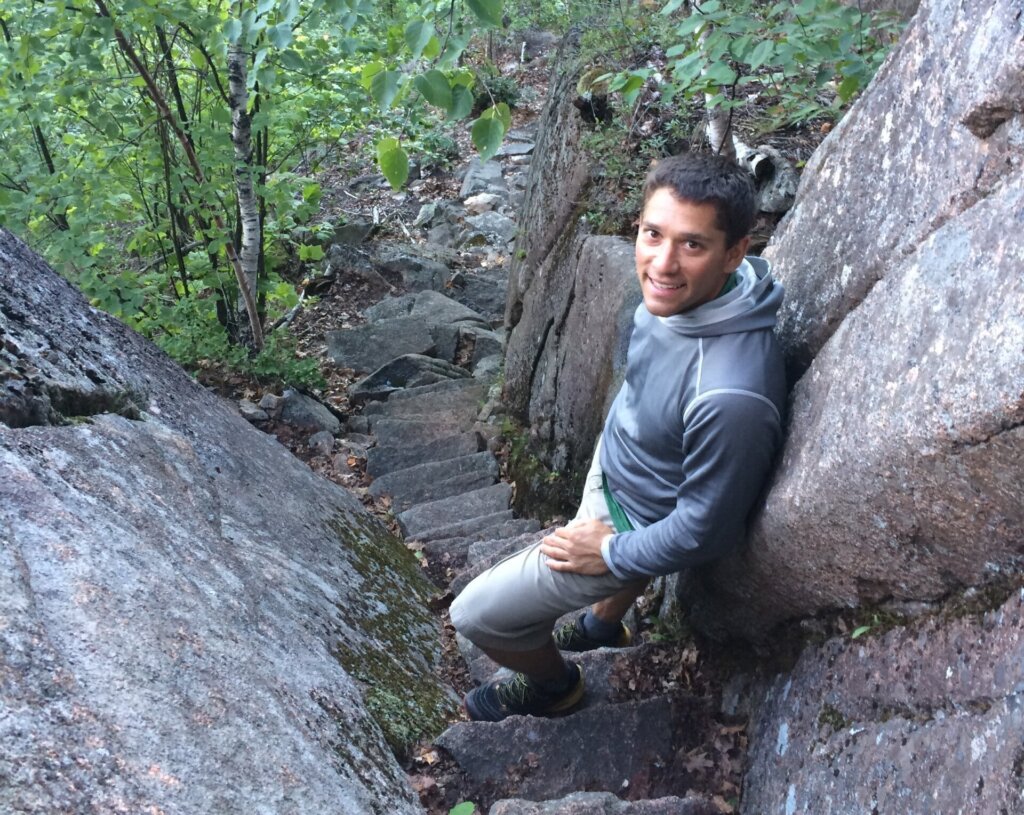Summer fun in the Colorado backcountry has inherent risks, but with the right skills, resources and preparation, you can set yourself and your group up for a successful trip and enjoy everything the backcountry has to offer. We’ve talked at Aspen Valley Hospital before about safely exploring the wilderness in the winter, but this is backcountry safety, summer edition.
Before You Go
Plan Your Route
The devil is in the details when it comes to trip planning in the Rocky Mountains. In addition to mileage, be sure you know the total elevation gain of your hike. Many people can comfortably walk up to 3 miles per hour on flat ground, but your pace will decrease dramatically when you’re going uphill. Also, research trail conditions like snow cover, river crossings, washouts and downed trees. Less popular trails may become overgrown and be difficult to follow, and some high elevation trails may not be trails at all. Consider downloading a GPS track to help you stay found.
Check the Weather
Start with a detailed weather forecast specific to the area and elevation of your trip. Expect cooler temperatures and increased wind chill at higher elevations. In the summer months, plan your day in anticipation of afternoon thunderstorms, which bring risks of lightning strikes, hail and hypothermia. In the spring and fall, be aware of incoming cold fronts that may lead to snowfall and turn your summer camping trip into a winter expedition.
Be Prepared
At a minimum, pack rain jacket and pants, a few snacks and water. Even for short trips, carry a first aid kit and know how to use it. A small number of supplies can help you control bleeding, splint a broken arm, or sling a dislocated shoulder to get back to town on your own. More significant injuries may require external resources, so be sure to bring a communication device to summon help. For areas without cell phone coverage, consider bringing along a satellite communicator.
Stay in the know with timely information from local experts. Join our Healthy Journey community and never miss a beat.
On the Trail
Stay Hydrated
The high elevations of the Rocky Mountains can lead to an increased risk of dehydration. Drink plenty of water, even if you don’t feel thirsty, to maintain proper hydration levels. For heavy exertion, add some electrolytes to offset what you’ll lose by sweating. For longer adventures, keep your pack light by collecting water from streams and lakes along your route instead of carrying it. Just be sure to use an appropriate water treatment method—even the cold, clear water of a mountain stream can harbor bacteria and viruses that might make you sick.
Mind the Altitude
The Rocky Mountains’ high elevations can decrease performance and cause altitude sickness. Acclimatization takes time, even for those with a high level of fitness, so be patient. If you experience symptoms like headache, nausea, dizziness or shortness of breath, descend to a lower elevation and seek medical attention if necessary. Read more.
Take Care of This Place
The Colorado backcountry is at risk of being loved to death as an increasing number of people discover this spectacular place. Minimize the impact you make by following Leave No Trace principles. Stick to existing trails and campsites rather than creating new ones. Pack out your trash and dispose of waste properly, including human waste when nature calls. Keep a safe distance from animals, never feed them, and properly store food to avoid attracting wildlife to trails and campsites.
 by Mark Falender, Critical Care Paramedic, IFMGA/AMGA Mountain Guide
by Mark Falender, Critical Care Paramedic, IFMGA/AMGA Mountain Guide

